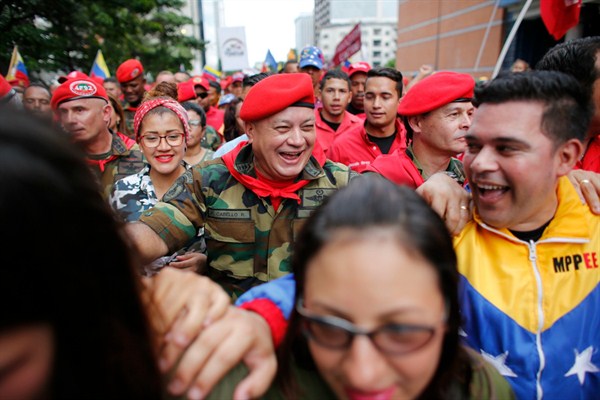Earlier this month, before leaving for a five-country trip in Latin America, U.S. Secretary of State Rex Tillerson speculated about a potential way out of the economic and political chaos in Venezuela. Perhaps, he suggested, the best solution was a military coup d’état. “In the history of Venezuela and South American countries, it is oftentimes that the military is the agent of change when things are so bad and the leadership can no longer serve the people,” he told an audience at the University of Texas.
President Donald Trump first introduced the notion of prioritizing bullets over ballots in Venezuela last August, when he unexpectedly floated a “possible military option, if necessary” among the range of U.S. policies toward Venezuela. But talk of a U.S. invasion quickly faded. At first, Tillerson’s remark this month also sounded like an offhand observation about a part of the world where, he said, “it’s the military that often handles” political crises.
Now, however, it seems Tillerson’s comments were something of a trial balloon. In the days after his statement, conservative foreign policy analysts began cheerleading for a coup. Then, the most influential senator on Latin American issues, Florida Republican Marco Rubio, championed Tillerson’s idea. “The world would support the Armed Forces in #Venezuela,” Rubio wrote on Twitter, “if they decide to protect the people & restore democracy by removing a dictator.”

